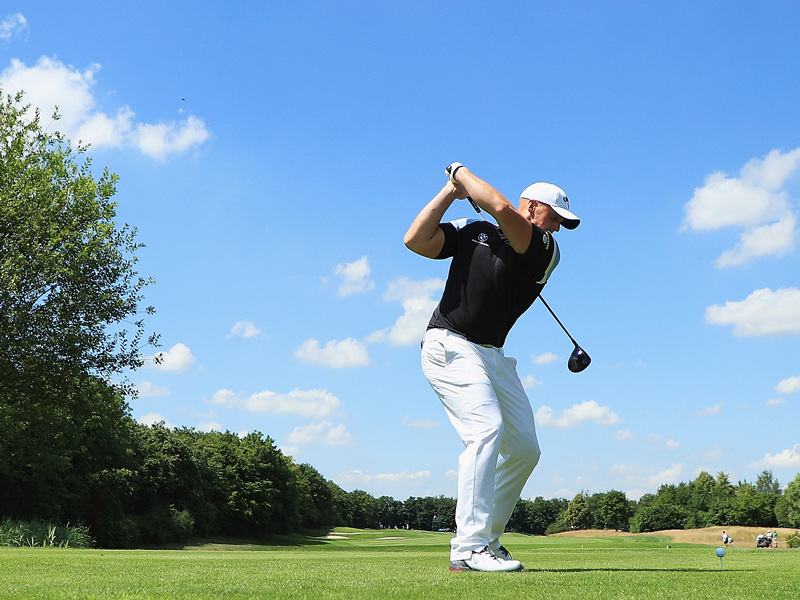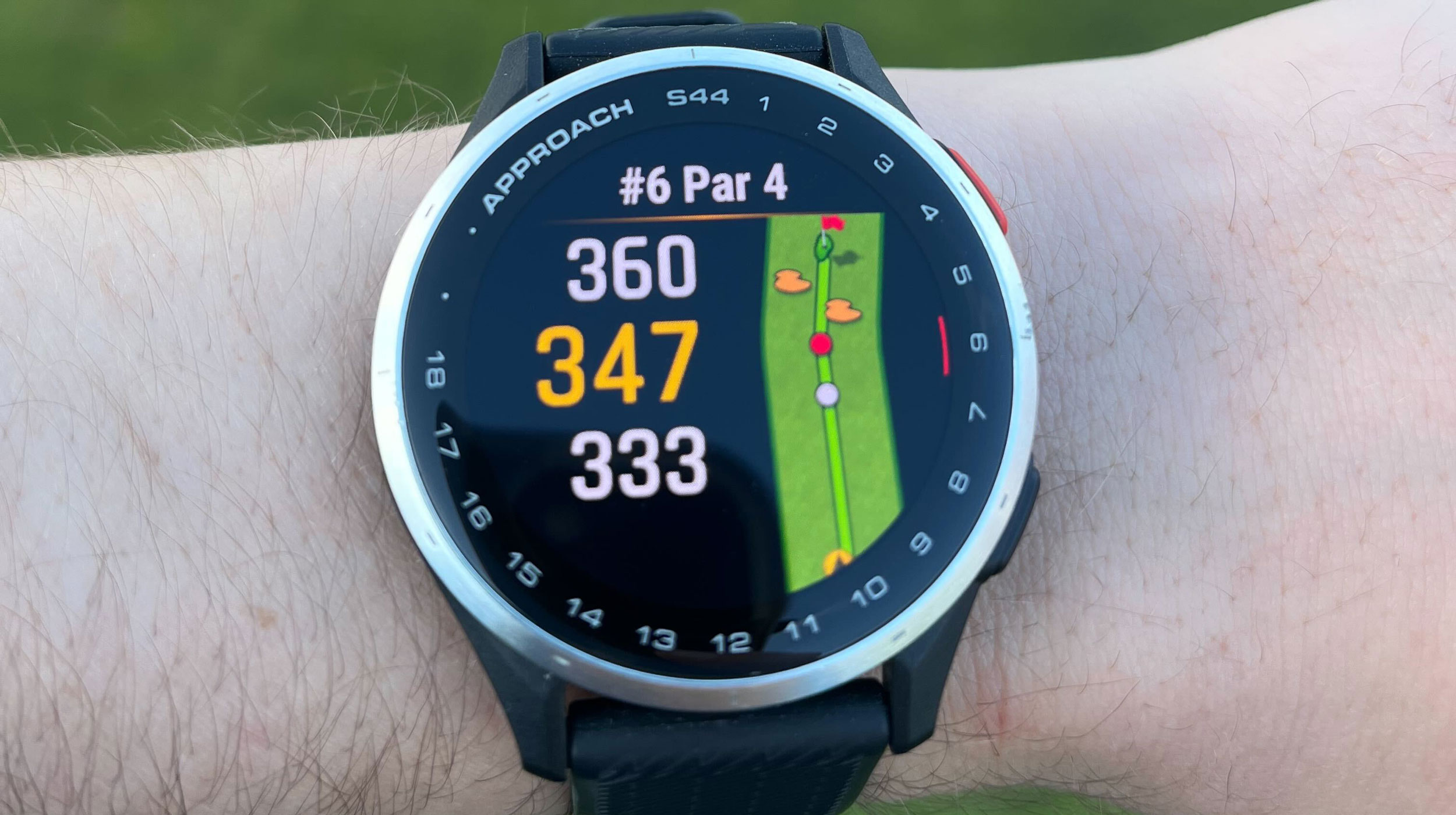Is Mental Strength More Important Than Physical Strength In Club Level Golf?
Does a strong mind always beats a strong body?


Golf Monthly regulars Jeremy Ellwood and Fergus Bisset debate whether or not a strong mind will always outplay a strong body.
Is Mental Strength More Important Than Physical Strength In Club Level Golf?
Yes says Jeremy Ellwood
"Competitive golf is played mainly on a five-and-a-half-inch course - the space between your ears."
You’ve probably heard this Bobby Jones quote, or variations on it, plus countless other opinions as to what percentage of golf is mental and what physical.
Often, that is in reference to professional golf, where those blessed with picture-perfect swings and impressive physiques don’t always seem to reach their potential.
But what about club level, where the swings are more idiosyncratic and less repeatable?
Get the Golf Monthly Newsletter
Subscribe to the Golf Monthly newsletter to stay up to date with all the latest tour news, equipment news, reviews, head-to-heads and buyer’s guides from our team of experienced experts.
Is it better to be blessed with a never-say-die mindset that helps you counter everything a typical round throws at you, or a physique and level of fitness that allow you to propel the ball prodigious distances and bounce merrily along the 18th fairway as fresh as the 1st?
Both are important, but I’m not sure I’ve ever lost a match or faltered down the stretch because of physical fitness; I know I have because of mental weakness!
Despite all the clamour for golfers to be regarded as athletes, I don’t think athleticism and physical strength are essential to play good golf and believe that other attributes can be more than a match for power hitting, whether short-game prowess or mental resilience.
There’s more than one way to play this game as guys like Corey Pavin have proved -one of the shortest hitters on tour who was savvy enough to know that mental strength and grittiness can neutralise or overcome an apparent power disadvantage.
I believe it’s the same at club level – a player with excellent mental fortitude can often be a match for the power-hitter knocking it 70 yards past him, especially when you factor in handicaps and 70 yards behind might actually become 150 yards ahead when shots are taken into account.
Is Mental Strength More Important Than Physical Strength In Club Level Golf?
No says Fergus Bisset
Golf is one of the most mentally demanding sports.
To bounce back from the continuous blows the game throws takes great patience and self-control.
But playing to any level of competence requires a degree of physical ability.
Producing a solid, repeatable swing involves a certain amount of flexibility and strength.
And continuing to reproduce this action as pressure builds and time elapses over 18-holes, takes fitness and stamina.
It doesn’t matter how much mental fortitude someone has if they are unable to make an effective, consistent pass at the ball or stay in top gear to the end of a round.
Players with greater physical prowess can reduce most holes to two blows.
They can attack pins with more loft, blast out of trouble, cut corners on dog-legs.
Quite simply, they have more options.
You can’t think your ball over a water hazard or on to a long par-4 in regulation.
It’s not possible to reason your way out of a heavy lie.
Golf often demands physicality and those unable to deliver it are at a distinct disadvantage.
Think of your club.
At the top of the pile are the physically talented players with a will to win.
Below them come the young bucks with great physical ability but a lack of maturity and mental savvy holding them back.
As they grow up and into the game, they’ll move to join those on top of the pile.
Below them, you have the mature players who know their games and use their mental strength to get the most from them.
They have achieved a level and won’t move up owing to their physical limitations.
Mental strength is important in golf, but it can only really be a defining factor if a player has a certain level of physical aptitude.
A player with huge mental strength but no physical ability holds golf’s busted flush.

Fergus is Golf Monthly's resident expert on the history of the game and has written extensively on that subject. He has also worked with Golf Monthly to produce a podcast series. Called 18 Majors: The Golf History Show it offers new and in-depth perspectives on some of the most important moments in golf's long history. You can find all the details about it here.
He is a golf obsessive and 1-handicapper. Growing up in the North East of Scotland, golf runs through his veins and his passion for the sport was bolstered during his time at St Andrews university studying history. He went on to earn a post graduate diploma from the London School of Journalism. Fergus has worked for Golf Monthly since 2004 and has written two books on the game; "Great Golf Debates" together with Jezz Ellwood of Golf Monthly and the history section of "The Ultimate Golf Book" together with Neil Tappin , also of Golf Monthly.
Fergus once shanked a ball from just over Granny Clark's Wynd on the 18th of the Old Course that struck the St Andrews Golf Club and rebounded into the Valley of Sin, from where he saved par. Who says there's no golfing god?
-
 I Need These Golf Shoes - FootJoy Unveils Legends Series With Stunning 'Spring Bloom' Shoes
I Need These Golf Shoes - FootJoy Unveils Legends Series With Stunning 'Spring Bloom' ShoesFootJoy continues to raise the bar when it comes to special edition golf shoes...
By Sam Tremlett
-
 Garmin Approach S44 Golf Watch Review
Garmin Approach S44 Golf Watch ReviewHow does the latest installment in Garmin's golf smartwatch range perform both on and off the golf course?
By Conor Keenan